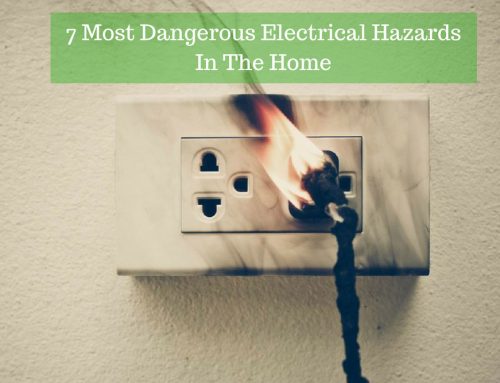Do you know what uses the most energy in your home? If you answered no, you’re not alone. Most homeowners don’t know why their electricity bill is high and are unsure what the power drainers are and how to manage them.
Electricity consumption is determined by many things, for example, seasonality, the types of appliances used and the age of appliances within the home. Knowledge of which factors drain the most electricity and taking action to reduce this will contribute to a significant reduction in the amount being spent on your electricity bill each quarter.
If you’re tired of overpriced power bills, here are a few factors you can consider investigating to reap the savings.
Finding the Power Drainers:
Main Factors Impacting Energy Consumption
Here are some of the factors to consider when assessing your energy consumption:
-
The number of people in the home and living habits. Whilst this may seem obvious, it needs mentioning. Household occupancy does impact the bill amount, but the number of occupants is of lesser importance than how your occupants consume energy. Here are some lifestyle and consumption habits examples to consider:
-
Is the air conditioner and heating running part of the day or all day?
-
Is there a preference for using a clothes dryer over line drying?
-
Do you have short or long showers?
-
Are you a morning versus evening shower user?
-
Do you work from home?
-
Do you have two or more refrigerators/freezers or a drinks fridge?
-
Do you use an electric oven versus a microwave?
-
Do you switch off lighting, tv’s or computers when you leave a room?
-
Do you unplug battery chargers when not in use?
-
Do you use energy-efficient light fittings??
-
-
House characteristics. The age of the house, insulation and even the homes orientation and location can impact energy use. If you live in a green area that has lots of trees, you’ll spend less on cooling down your property in the summer. Poor home insulation, on the other hand, will make you waste a lot of power when trying to keep the home heated during colder months.
-
Appliance characteristics. It’s no secret that older appliances aren’t as energy efficient as new ones. If you’ve been using the same appliances for decades, you’re probably spending way more on electricity than you should be. Some of the appliances that use the most electricity and that should probably be upgraded include air conditioning units (these can contribute to as much as 47 per cent of your electricity bill!), water heaters (14 per cent), computers and electronics, washers and dryers and electric ovens.
-
Season and outdoor temperature. Climate plays a role in energy use. If you have to heat or cool down your home you should consider which are the most appropriate appliances (AC v fans), the length of time you run them and if additional whirlybirds are needed.
-
Poor Rates, tariffs and peak demand charges. Ask your electricity provider if they send you an estimated bill instead of an actual bill to ensure catch up bills do not lead to bill shock. Furthermore, understanding how much you are being charged when you most consume energy is important to reducing your power bill. Discuss with your energy provider Time of Use tariffs and peak demand charges.
As you can see, some of these factors can be controlled and modified. Let’s check out some tips for managing energy waste.
How to Save on Energy Bills: Reduce Your Energy Consumption Through Simple Changes
You may think that buying new appliances or changing your lifestyle won’t impact your energy bill, but you’re wrong.
An energy-efficient fridge, for example, uses 15 per cent less power than an older one. New AC units can reduce your power bill between 20 and 40 per cent! This means that a strategic investment in new appliances will pay itself off in a couple of years through power savings. After that, you’ll be saving a lot of money over the lifetime of your new purchases. Here’s a good list you can use for the purpose of discovering the most energy-efficient appliances for your home.
While this is one of the biggest ways to get rid of power drainers, you can definitely employ some of these simple tips:
-
Go for electricity saving lights. Lights are also a big contributor to your energy bill. Energy-efficient light bulbs are a good choice if you want to eliminate power drainage altogether. LED and CFL bulbs, for example, use anywhere between 25 and 80 per cent less energy than traditional incandescent lights.
-
Tweak AC and heater settings. It’s not enough to choose energy-efficient AC units. The right settings will also be needed to make the most of them. For households use a set-point of 5˚C in the fridge and -18˚C for the freezer is a good guide. Resetting the thermostat during the night or when you’re away from home will produce big power savings. Keep in mind that for every degree that the thermostat goes down, you’ll be saving about one to three per cent on your electricity bill (depending on the system’s efficiency).
-
Check your insulation, doors and windows: as already mentioned, drafts and poor insulation will make you throw money out the window (literally)! To heat your home or cool it down more efficiently, you may want to consider insulation, door and window upgrades. Old windows contribute to anywhere between 25 and 30 per cent of energy losses and you can use this formula to calculate how much money new insulation will save you. The use of block-out curtains can protect rooms against heat loss during winter and heat gain during summer.
-
Change your lifestyle habits: the way you use your appliances is as important as their energy efficiency. Doing the laundry or cooking during off-peak hours will help you save. You can also enforce shorter showering times in the home or upgrade your hot water tank to 250L or above unit which heats the water during night rates. Unplugging appliances from the wall when they’re not being used can also help for some notable power savings.
Controlling the power drainers shouldn’t involve heavy expenditure. You can start implementing the above tips immediately to save money and reduce the environmental impact of your household usage.
Do you need further help or tailored advice for your situation? Contact Scholz Electrical for residential electrical services and appliance choices. We’ll Look After You.






